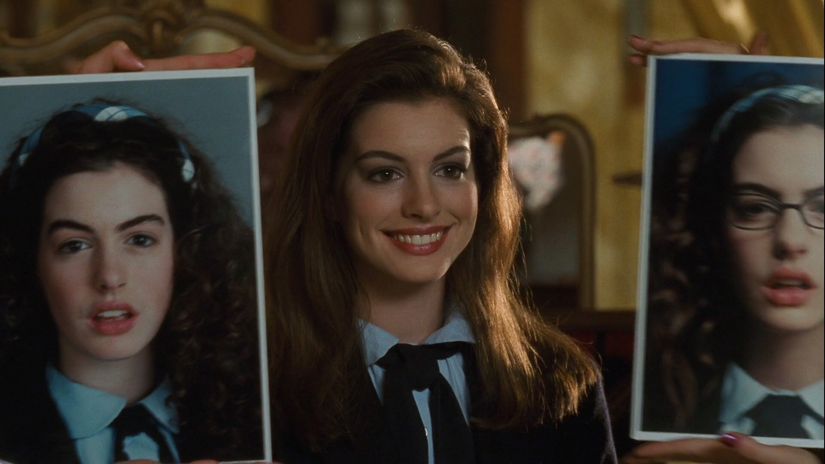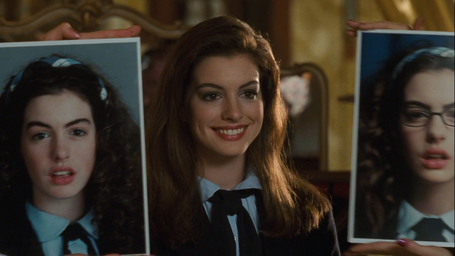The 2001 Disney movie, The Princess Diaries, is a cinematic masterpiece. Starring the iconic duo Anne Hathaway and Julie Andrews, The Princess Diaries will always have a special place in my heart because I watched it during my formative years when it was difficult to relate to anything in media. Mia Thermopolis was socially awkward but said what was on her mind even if it came out as a mess of fumbling words. She didn’t have many friends, but her best friends Lily and Michael, were enough because they understood her. She goes through a series of obstacles navigating the life of a princess, and even though I am far from that, being a teenage girl was hard enough.
Mia Thermopolis wore clunky glasses, just like me. Mia Thermopolis had dark, thick, unruly curly hair, just like me. Mia Thermopolis was overlooked because of her appearance, just like me. Mia Thermopolis was given a makeover to transform her from an ugly duckling into a beautiful swan, and I believed I had to do the same.
The ugly duckling trope in movies, tv shows, and other forms of media transforms a person’s “ugliness and mediocrity” into the epitome of beauty. Almost always do the makeovers uphold eurocentric beauty standards. Some popular movies that include makeover montages are Clueless, She’s All That, Miss Congeniality, and Pretty Woman. Don’t get me wrong, I love these movies, but when I was younger a big reason why was because of wishful thinking. Before these women were considered “attractive,” they were made fun of and paid no mind. It isn’t until they straighten their hair, decide to wear contacts, pluck their eyebrows, and wear that dress they swore they’d never wear, are they then recognized as a person.

Typically the most popular coming-of-age chick flicks that use the ugly duckling trope has a white female lead. None of the women who are transformed were really ugly, to begin with. There is an association between beauty and whiteness that celebrates white femininity. Most of these female leads already conform to Western beauty standards and only have to “fix” what didn’t. Hermione Granger from Harry Potter is described as having bushy brown hair, brown eyes, and large front buck teeth. Throughout the books, Hermione is ruthlessly made fun of for her appearance by classmates and even once by professor Snape. In the movies, Hermione loses any “ugly” features by being cast by Emma Watson. Emma Watson’s Hermione barely changes after her big swan transformation in Harry Potter and the Goblet of Fire.
What is considered beautiful can be proxies for wealth. It isn’t shown in the movie, but in the book, Hermione uses magic to shrink her teeth ahead of her beautiful swan moment. This is a parallel to cosmetic surgery that inherently enforces beauty standards. If we were made to think that Emma Watson was unattractive as an ugly duckling, where does that leave people of color?
The inability to conform to beauty standards, especially when it is glorified by the ugly duckling trope, is rarely achievable for people of color. And when people of color attempt to do so, they are scrutinized. Being a thin, white, able-bodied woman should not be what we desperately strive for. They are beautiful, but are not the epitome of beauty. We must deconstruct and decolonize what beauty is and not measure our value on how well we follow it.




